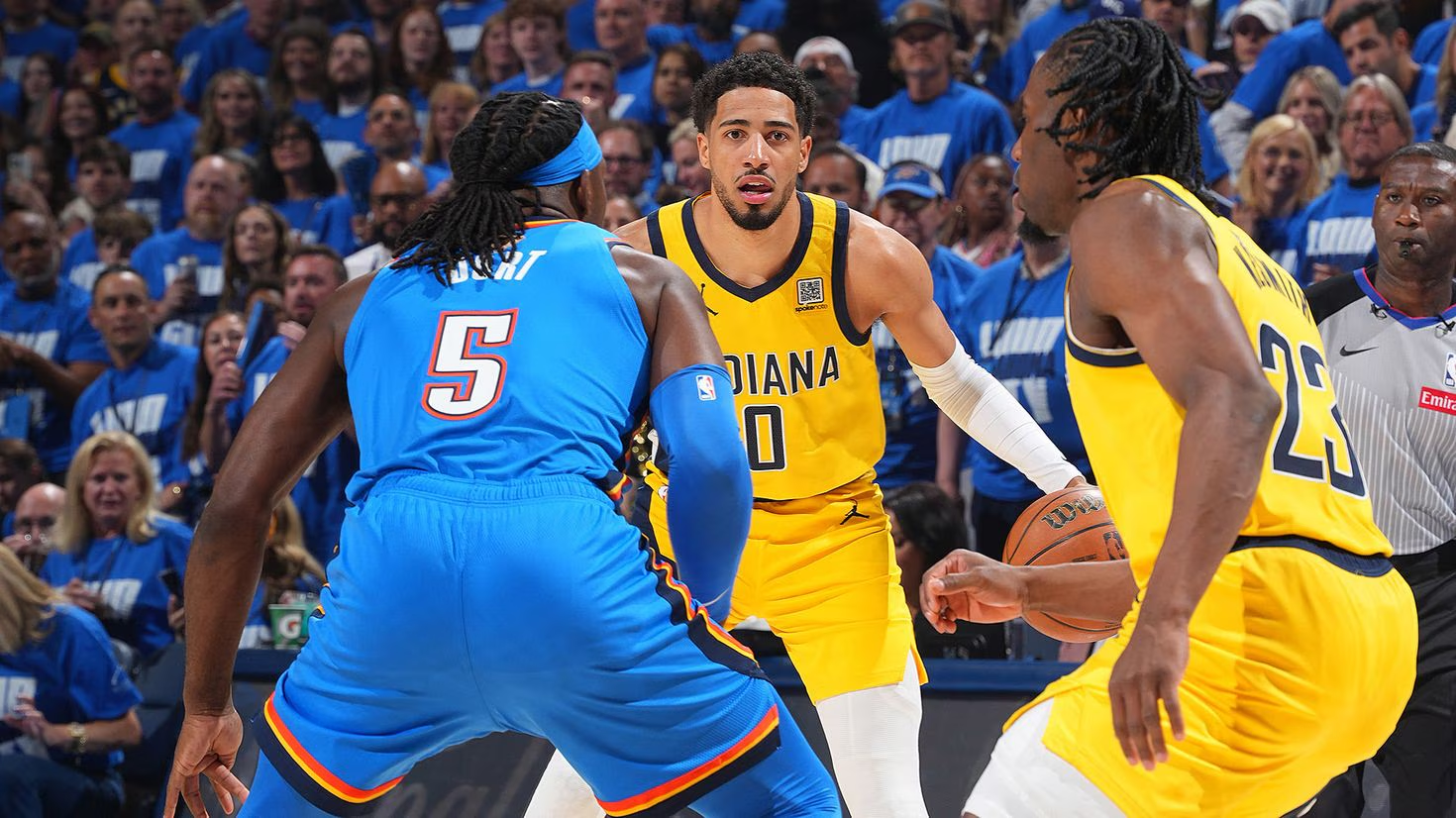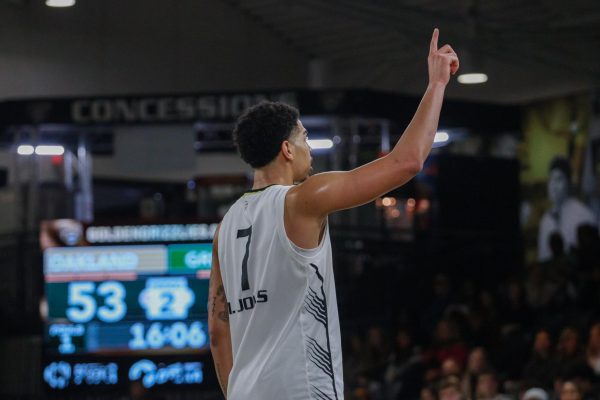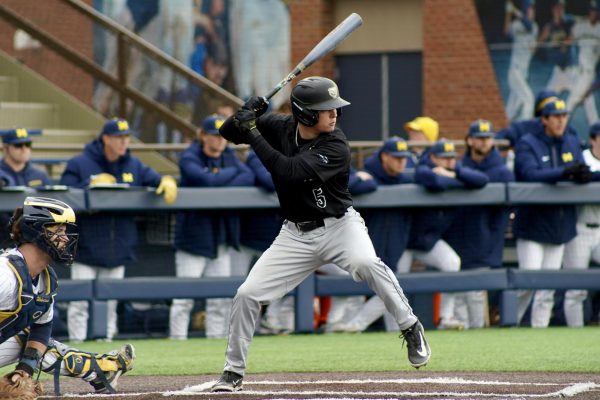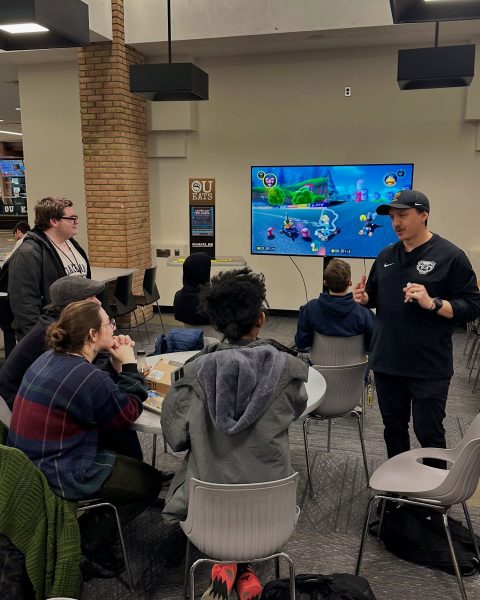Grizzlies on the gridiron? Age-old question of an OU football program is revisited
By SEAN GARNER
and ZACH HALLMAN
On Saturdays across the country, college students forget about their academic obligations in favor of cheering their school’s football team to victory.
Students and communities from St. Paul, Minn. to Gainesville, Fla., look forward to that day as one in which they can express pride in their school with fellow supporters. The campus of Oakland University and its surrounding community have never had the chance to join the nationwide football fever as the school has never fielded a football team.
Dan Evola, a legislator on Oakland’s student congress, is trying to change all that. Evola, former OU Student Congress president, is trying to generate support for establishing a varsity football program by forming a group on Facebook, creating a survey for students, and possibly developing a student advocacy organization in the future.
“I am trying to see where the student interest is and I think the time is right for a football team,” Evola said. “It’s the twelfth year in a row that we have seen expansion in enrollment at the school, we have a medical school coming in and we have a basketball team that is the best it has ever been. There is a lot of excitement going on right now that makes the timing right to push for a team.”
Numerous obstacles
Evola likely faces a steep uphill battle from the administration if he chooses to intensely pursue football at OU. University spokesperson Ted Montgomery said the issue of creating a football program comes up every couple years, and the university has been consistently uninterested.
Montgomery said OU estimates it would cost somewhere around $100 million, which would include hiring coaches and staff, securing training facilities and ordering equipment for around 100 athletes.
“It is not feasible,” Montgomery said. “Most football programs don’t make money, they lose money. Before you even break even, an average of 25 years has to go by … Anyone who is really going for this, I’d be happy to sit down with them and show them the financials of starting such a program, and I think they’d change their mind pretty quickly.”
OU Athletic Director Tracy Huth gave a more conservative estimation at the total startup costs, but agreed that Oakland has a long way to go before it can think about supporting a Division I football program.
“There is currently little or no infrastructure within the department of athletics to support a football program,” Huth said. “Startup costs alone would be a minimum of $20 million and could even be double this amount. Annual costs for staff, scholarships, equipment, operations, travel and recruiting would also be several million dollars.”
According to Evola, adding a football team to the university would not only benefit the school financially, but would also lead to improved student and campus life.
“The attention the school would garner from having a Division I football team would be pretty big,” Evola said. “It is one of those things that would really boost enrollment and would also add a lot of buzz to the school.”
Both Evola and Montgomery also mentioned Title IX complications as a potential hurdle to creating a football team.
Passed by the federal government in 1972, Title IX is most commonly applied to college athletics scholarships. OU awards scholarships to men and women in proportion to the overall gender ratio of the student body. The university is currently Title IX compliant, and a football program would add an additional 50 to 85 scholarships, which the school would have to compensate for, possibly by cutting existing athletics programs.
For comparison’s sake
If Evola’s optimistic predictions are true, OU would not be the first school to benefit from building a Division I football program from scratch.
The University of South Florida, a 53-year school of only about 7,000 undergraduate students which started football in 1997, provides a source of both optimism and caution for those eager to start a football program at OU.
The Bulls started as an independent program in Division I-AA — now called the Football Championship Subdivision — and 10 years later, they were ranked as high as No. 2 in the country at the highest level of competition.
But that’s only the sunny side of the picture. Chris Freet, assistant athletic director at USF, said the school spent over $5 million just performing research to gauge the interest of a football program.
According to Freet, USF still loses money on a yearly basis.
“While it seems like if there is enough support on campus it might be something that could happen, internally, there are a lot of people that need to be involved,” Freet said. “It was a long process for the whole university before we could say that USF was going to have a football team.”
Student reactions
Regardless of the fiscal consequences, a number of OU students still get excited at the thought of having a varsity team in the nation’s most popular intercollegiate sport on campus.
Matt Ugorowski, a senior medical laboratory science and nuclear medicine major, thinks a team would provide financial and social benefits for the university.
“With a football team we could have tailgaiting and something to look forward to Saturdays,” Ugorowski said. “It brings in the whole college experience.”
Evola believes the only things that stopped a team from forming in the past were student interest and effort.
“There have been a lot of myths floating around for a long time about why Oakland doesn’t have a football team,” Evola said. “From what I have found, it’s just that no one has ever pushed for it, so why would the administration put money into something that they haven’t seen any interest in?”
One of the popular myths on campus, that school founder Matilda Wilson strictly forbade the establishment of any contact sports at OU, was refuted by Evola and confirmed as false by Montgomery.
James Sullivan, a junior computer science major, thinks that the overall cost of the potential program makes the process unworthy of pursuit.
“With the unjustified increase (in tuition) that already took place this year, it would not be right to raise tuition for football scholarships,” Sullivan said.
Huth said the issue of establishing a football team is one he addresses regularly, and there is little doubt he’ll continue to address it in the future.
“There isn’t a week that goes by that someone does not ask or quiz me about a football team,” Huth said. “Realize though, that the notion of football at Oakland has typically been an inquisitive approach. In my tenure it has never been a serious issue.”
Still, Evola is determined to at least make an effort at forming a pigskin team at Oakland.
“I want to rile people up as much as possible,” Evola said. “I have had many positions with the school and been involved in a number of different organizations and there are a couple themes that are always repeated that students want to see: parking and football.”






